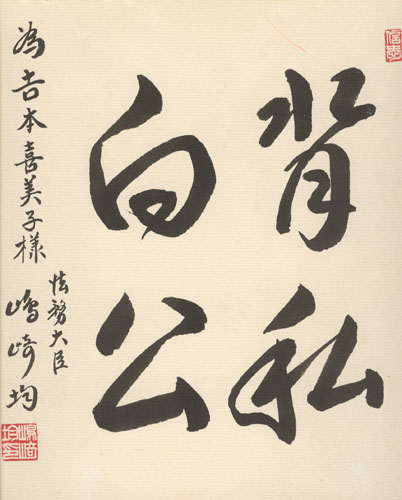
"Turn away from the selfish, turn towards the public." |
|
Although this is a quote from Prince
Shotoku's "17-Article Constitution" (Japan, 604 C.E.),
it expresses an idea and terminology (gong-si, public and
private) that was prominently used by Neo-Confucians.
|
1127: Jurchen (Jin dynasty) conquer
North China
1234: Mongols (Yuan dynasty) conquer
Jurchen
1279: Mongols conquer Song
- Critic of Buddhism and Taoism, defender of Confucianism
- Memorial on the Bone of the Buddha," "Inquiry on the Way
Northern Song:
- Taoist cosmology and Confucian ethics
- Supreme Polarity Diagram (Taiji tu)
- numerology and divination
- ethics grounded in qi ; "Western Inscription"
- metaphysics of li (principle/order) and qi
- humanity (ren) forming "one body /substance" (yiti) with things
- intuitive knowledge
- metaphysics (li and qi)
- investigating things (gewu), objective knowledge
- synthesizer of Northern Song thought, primarily following Cheng Yi
- human nature (xing) = principle/order (li ) = Supreme Polarity (taiji)
- daoxin (moral mind) / renxin (human mind)
- Cheng/Zhu school became official orthodoxy,
basis of civil service examinations from 1313 to 1905,
also called "School of Principle" (lixue)
(or Lu Xiangshan)
(1139-1193)
- intuitive knowledge (following Cheng Hao)
- mind/heart (xin) = principle/order (li)
(1472-1529)
- "extending innate knowledge" (zhi liangzhi)
- "unity of knowledge and action" (zhi xing heyi)
- Lu/Wang school, also called "School of Mind" (xinxue)